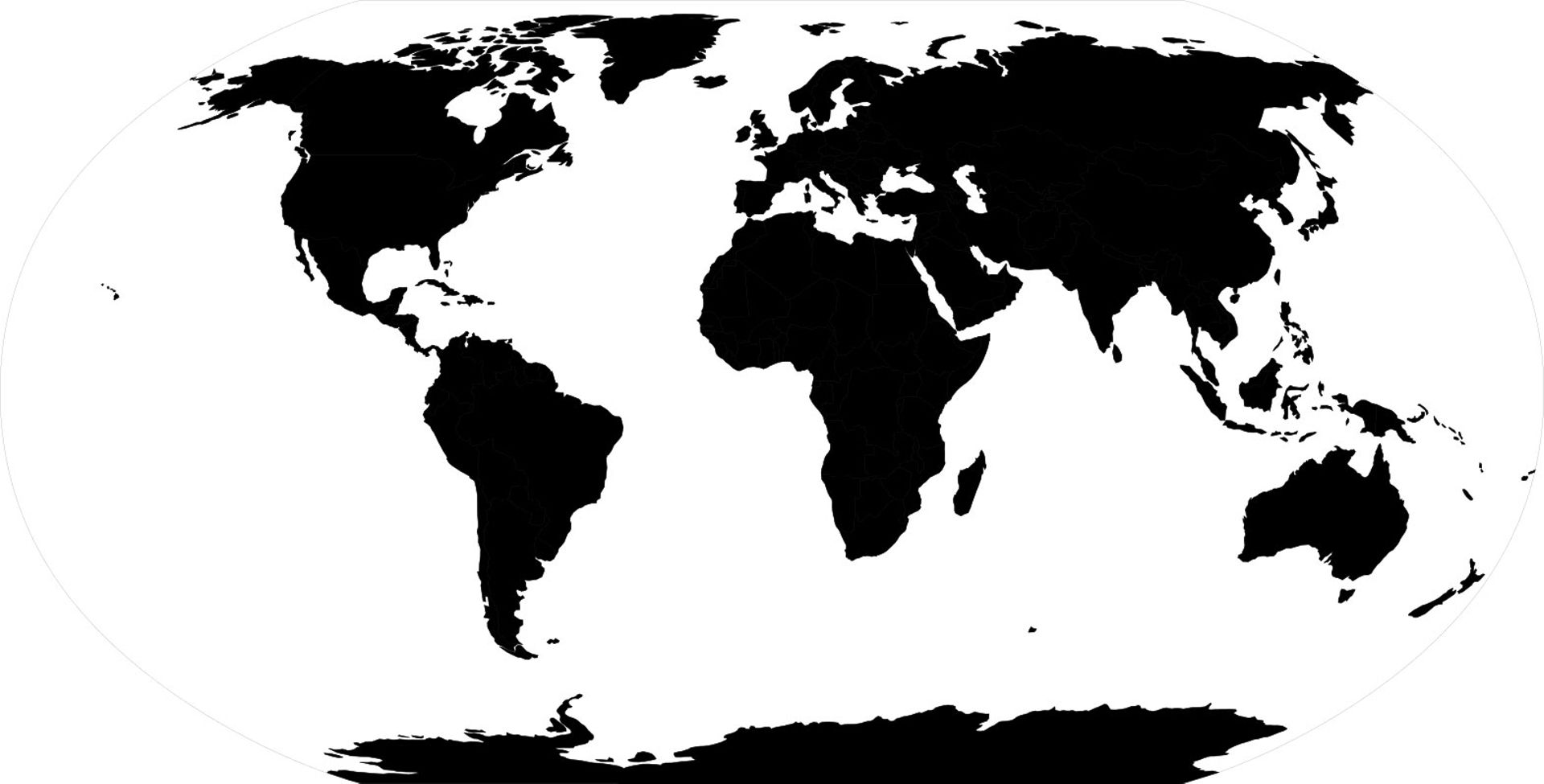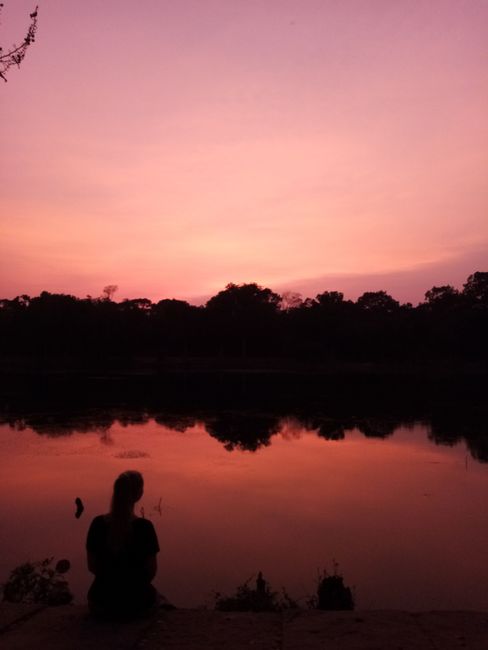32. Stop Chiang Mai, Thailand
Birt: 27.03.2020
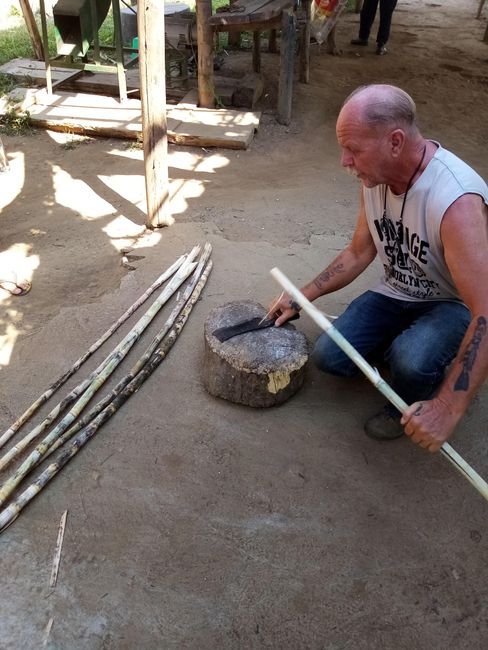
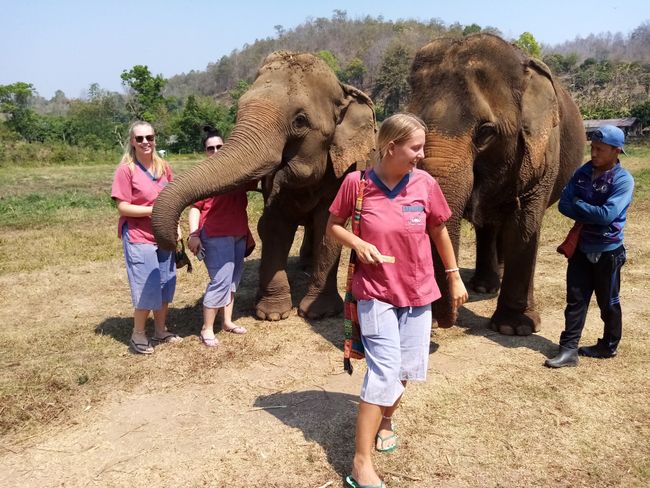
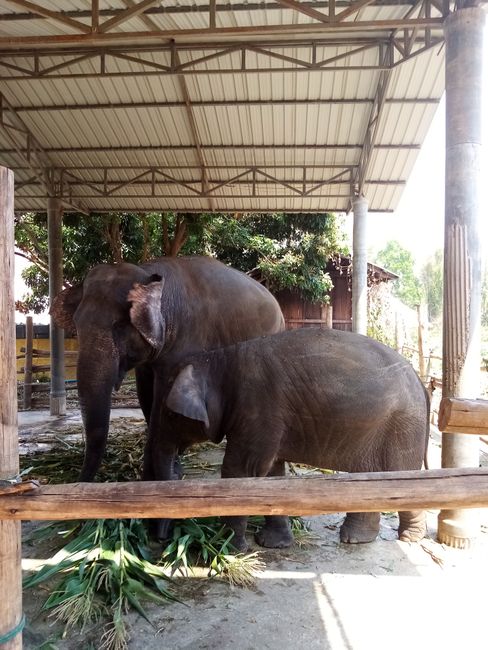
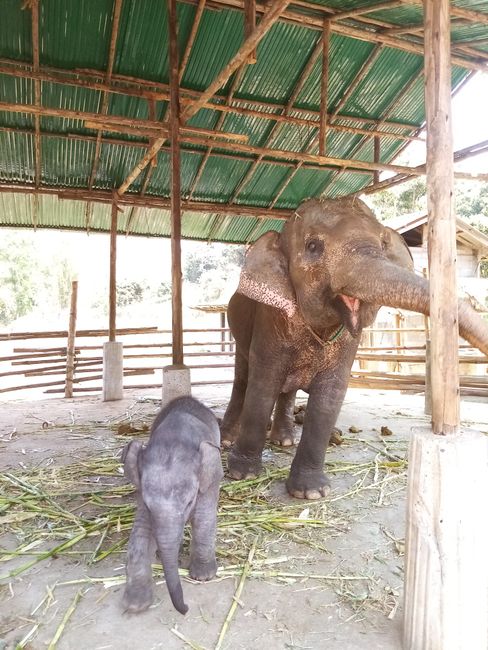
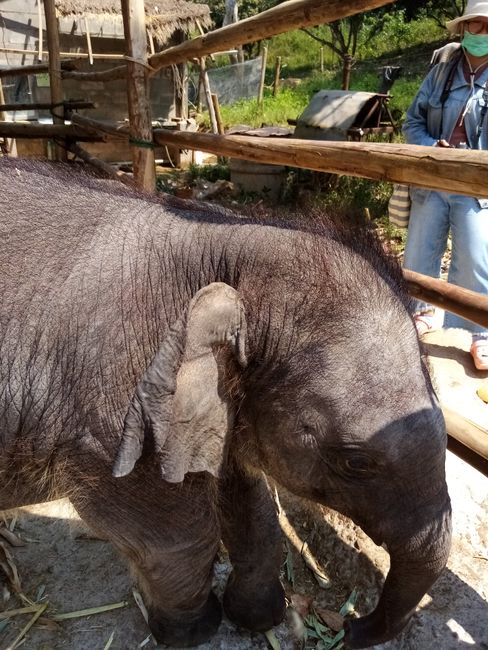
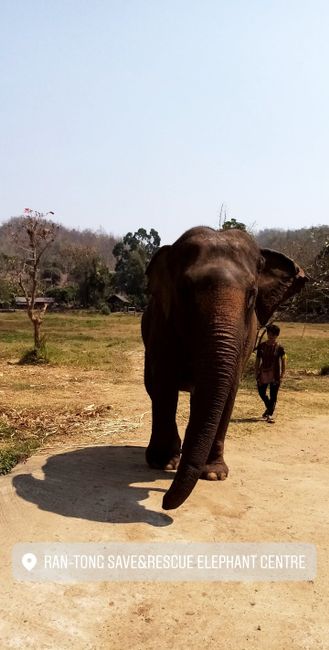
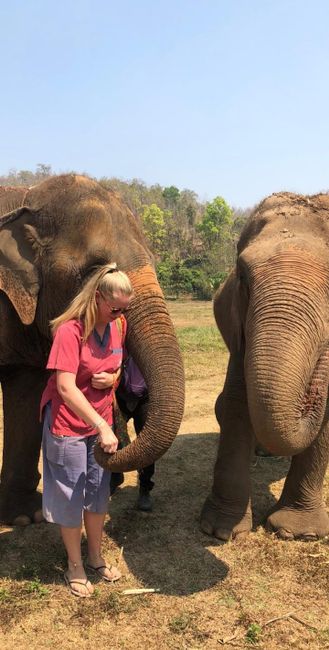
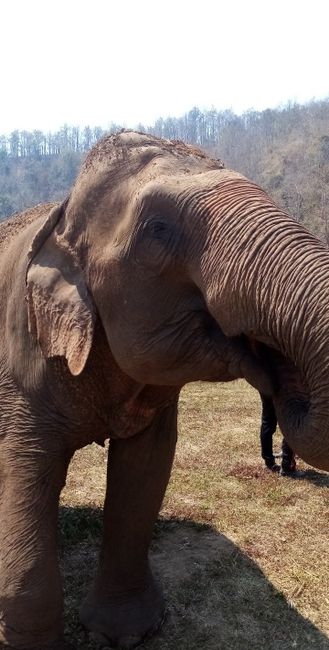
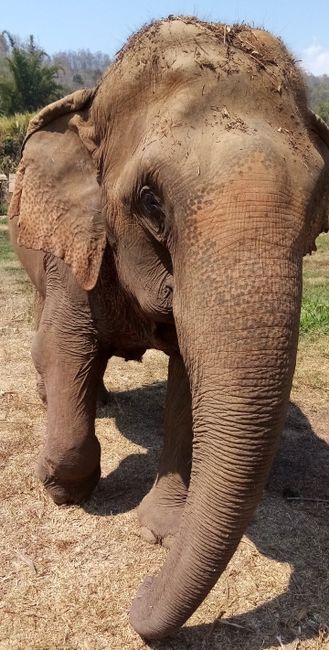
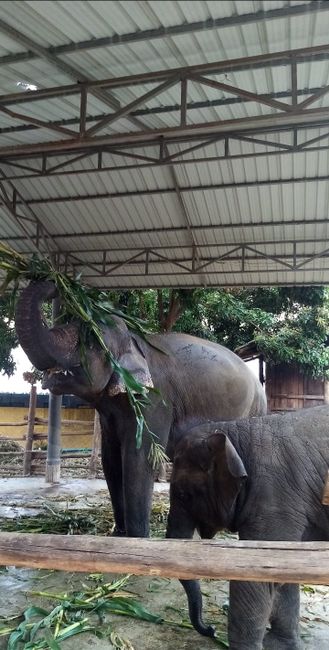
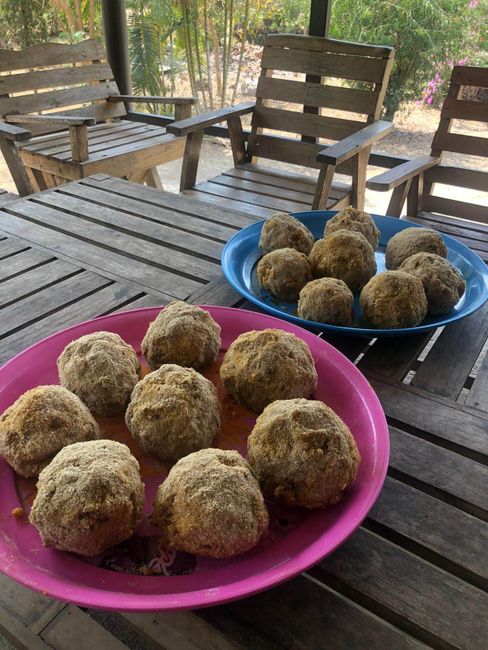

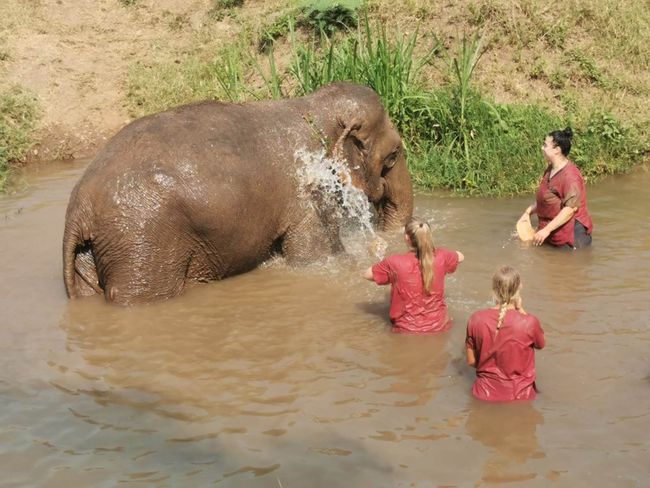
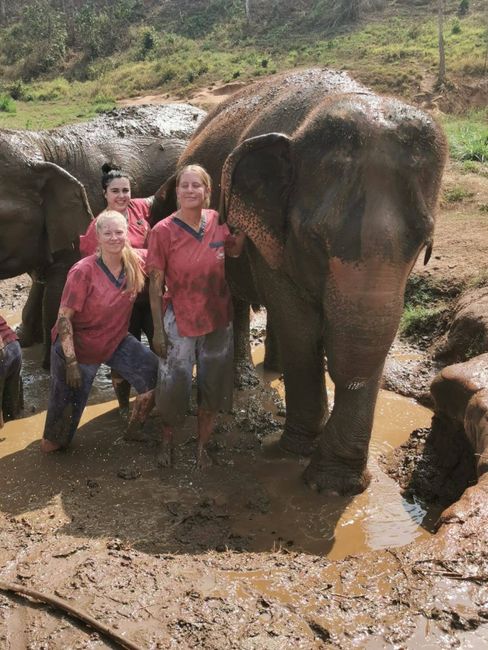
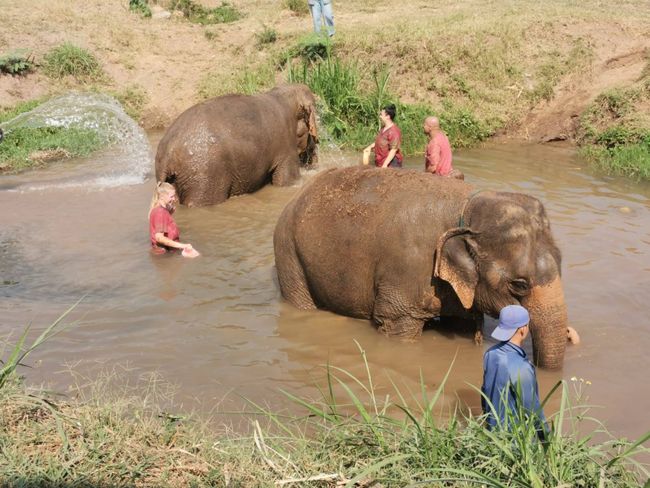
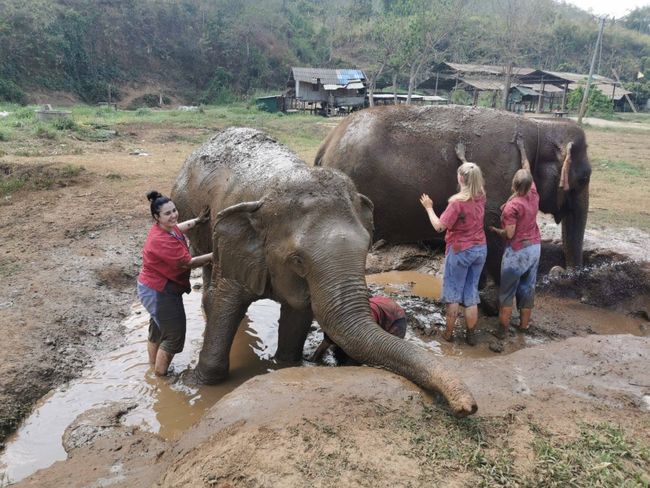
The next day, everyone was accordingly hungover, so the day wasn't particularly productive. But what I immediately noticed: Chiang Mai was hot, but the heat was much more pleasant and not as oppressive as in Cambodia, you could definitely tell you were in the north. The Swedish girl's roommate was English and we spent the day together by the pool, sunbathing. From that moment on, we were a trio and spent every minute together.
Thailand, and especially the north, is known for numerous sanctuaries and camps for elephants that are rescued from captivity or hunted because of their tusks and would not survive in the wild. In the camp, they are nursed back to health and depending on their age or health condition, they are either released back into the wild or remain in the camp. I read a lot about it on the internet, as it is a tourist attraction and unfortunately there are also camps that only think about the money and not the health of the animals and lock them up as soon as the tourists leave. The three of us chose a camp and visited it the next day - so I still didn't go to Pai ;)
On Saturday, March 7, 2020, we were picked up at 7 a.m. and taken to the camp 1 ½ hours away. We were given clothes because ours would have gotten extremely dirty. First, Jon, a Swede who came to Thailand 30 years ago and has been volunteering at the camp for 20 years, told us some basic things about elephants. Safety was of course particularly important. Although the elephants are used to tourists, they naturally behave when they feel threatened and are not punished for it. What surprised me: we walked around in flip-flops, so our feet were not particularly or at all protected, but we just had to be careful. Each elephant has its own "caregiver," a person who takes care of it around the clock and watches over it. The animals are used to these people and are partially obedient. No tricks or stunts are taught, but since the camp is not fenced in, a few eyes must constantly watch out.
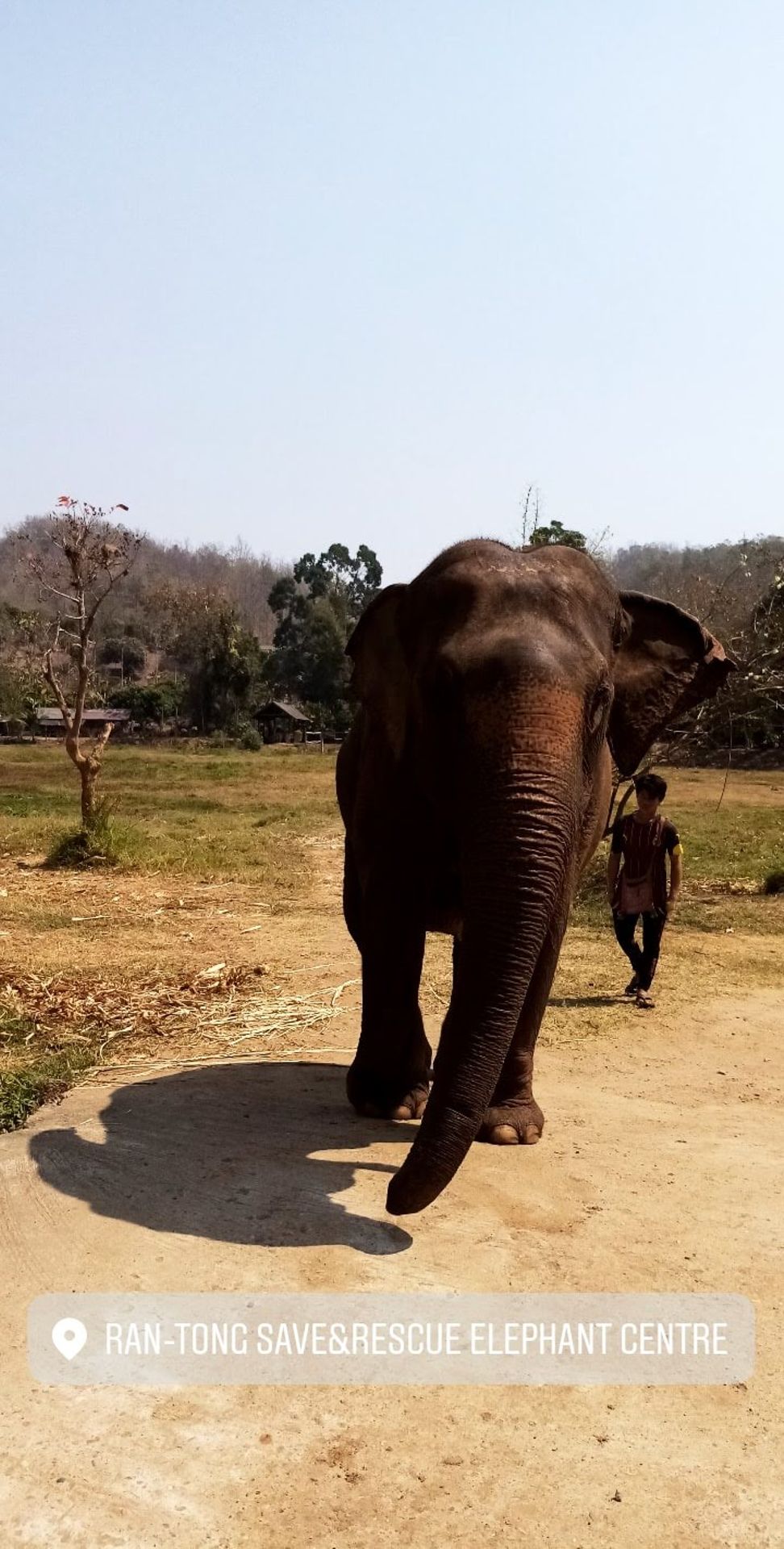
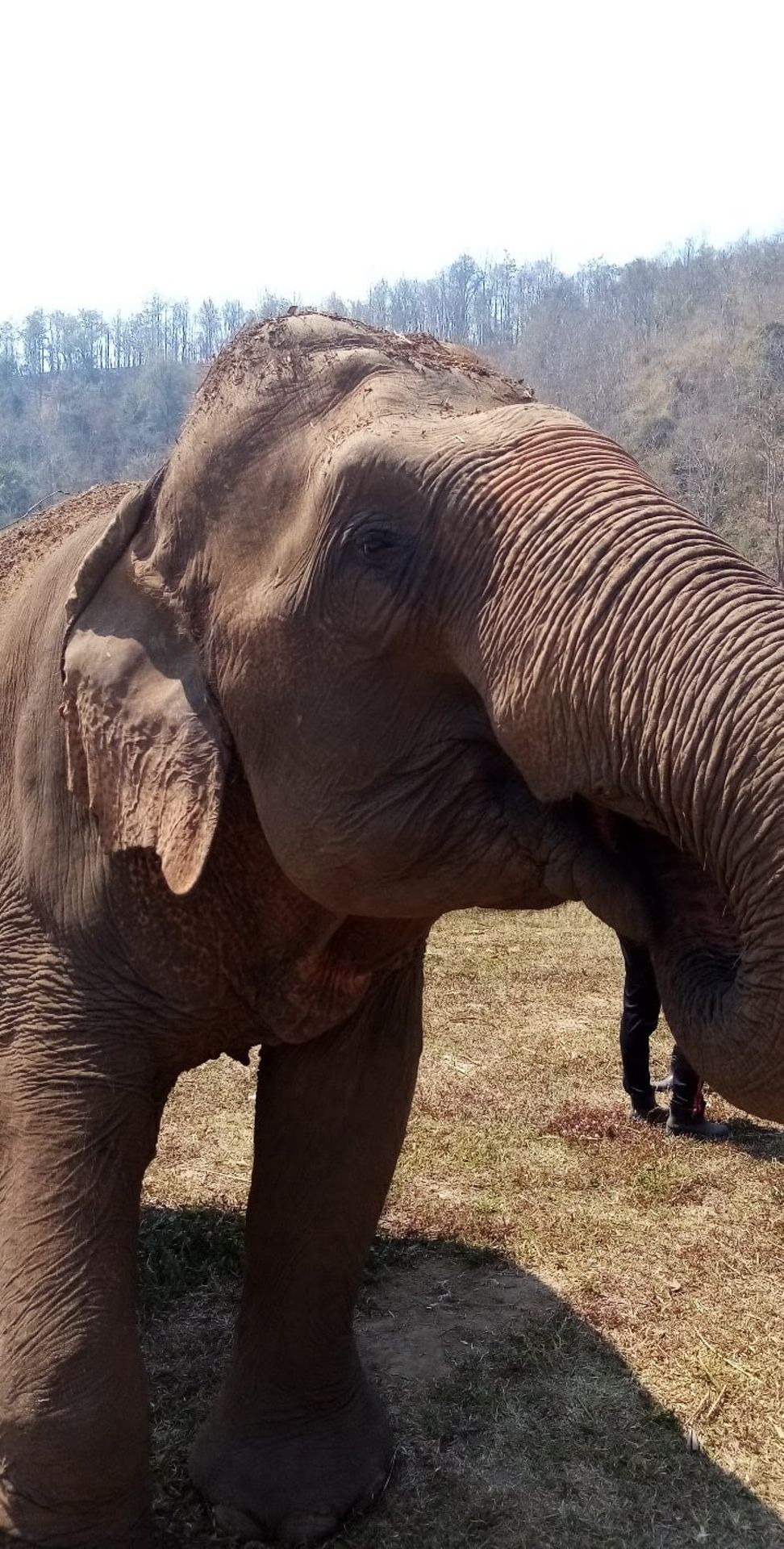
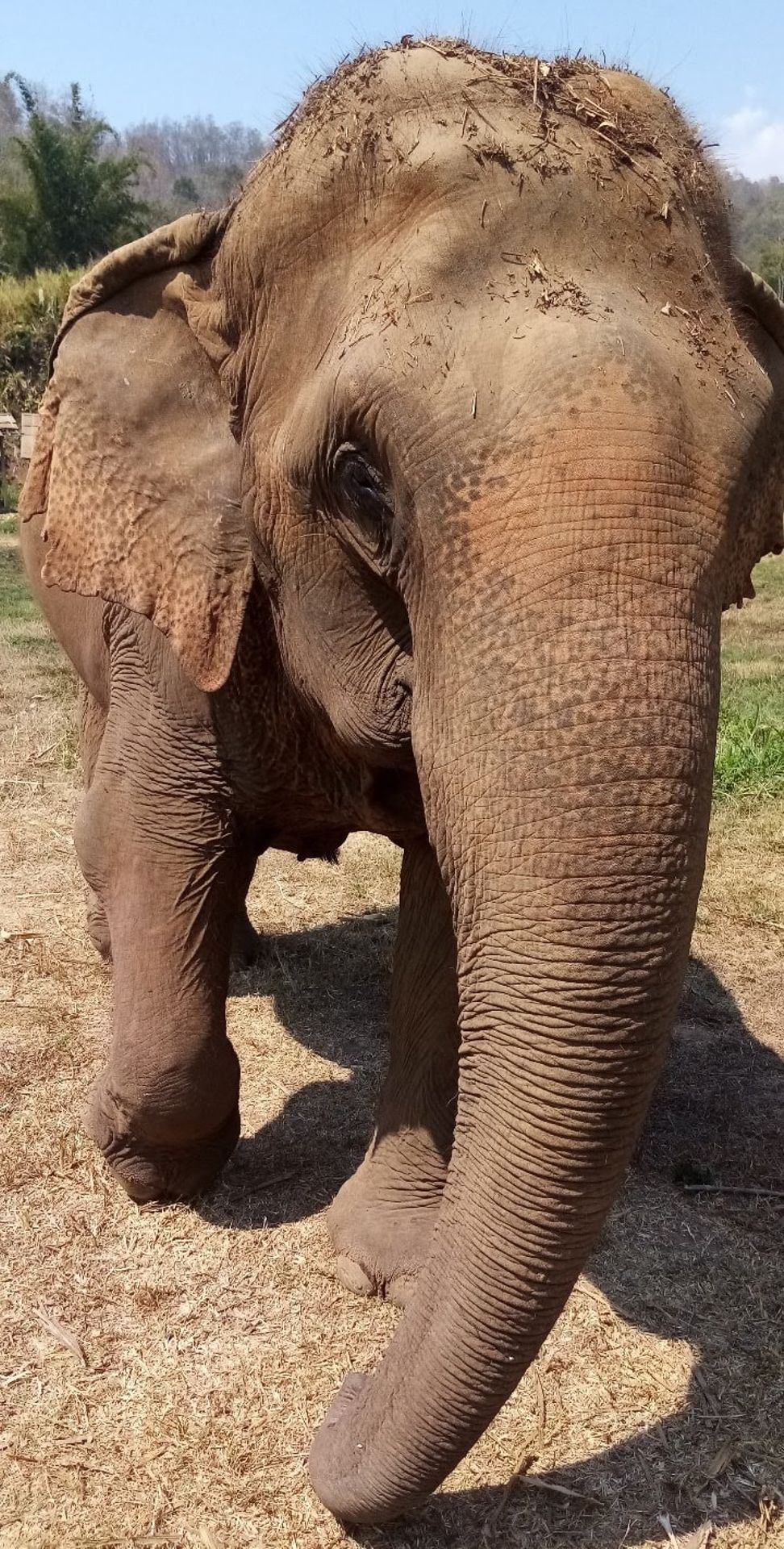
The first thing on the program was cutting sugar cane, which is like chocolate for elephants. They have an extremely good sense of smell and smelled that we were preparing their treats and therefore ran towards us and could hardly wait to be fed. Everyone filled their own bag and then we walked to the big field, the elephants naturally very close to our side and surrounded by trunks that practically touched us. It was my first time (as far as I can remember) being so close to such large animals, so I approached the situation with respect. Even though the elephants are used to people, I didn't want to put them in a situation where they would feel uncomfortable or threatened. The elephants sometimes tricked us and asked for one sugar cane stick, which we put in their mouths but without chewing, then asked for the second one and stuffed their mouths full with it. In our trio, we tried to make sure that at least one person wasn't feeding at the same time to capture the moment and take photos. Our bags were empty faster than expected, but we still managed to take numerous photos. I had imagined elephant skin differently. Jon had told us that it can be very sensitive and we should therefore not stroke it, but pat it. Therefore, I imagined the skin to be softer than it was. The individual hairs on it were also very hard and robust.
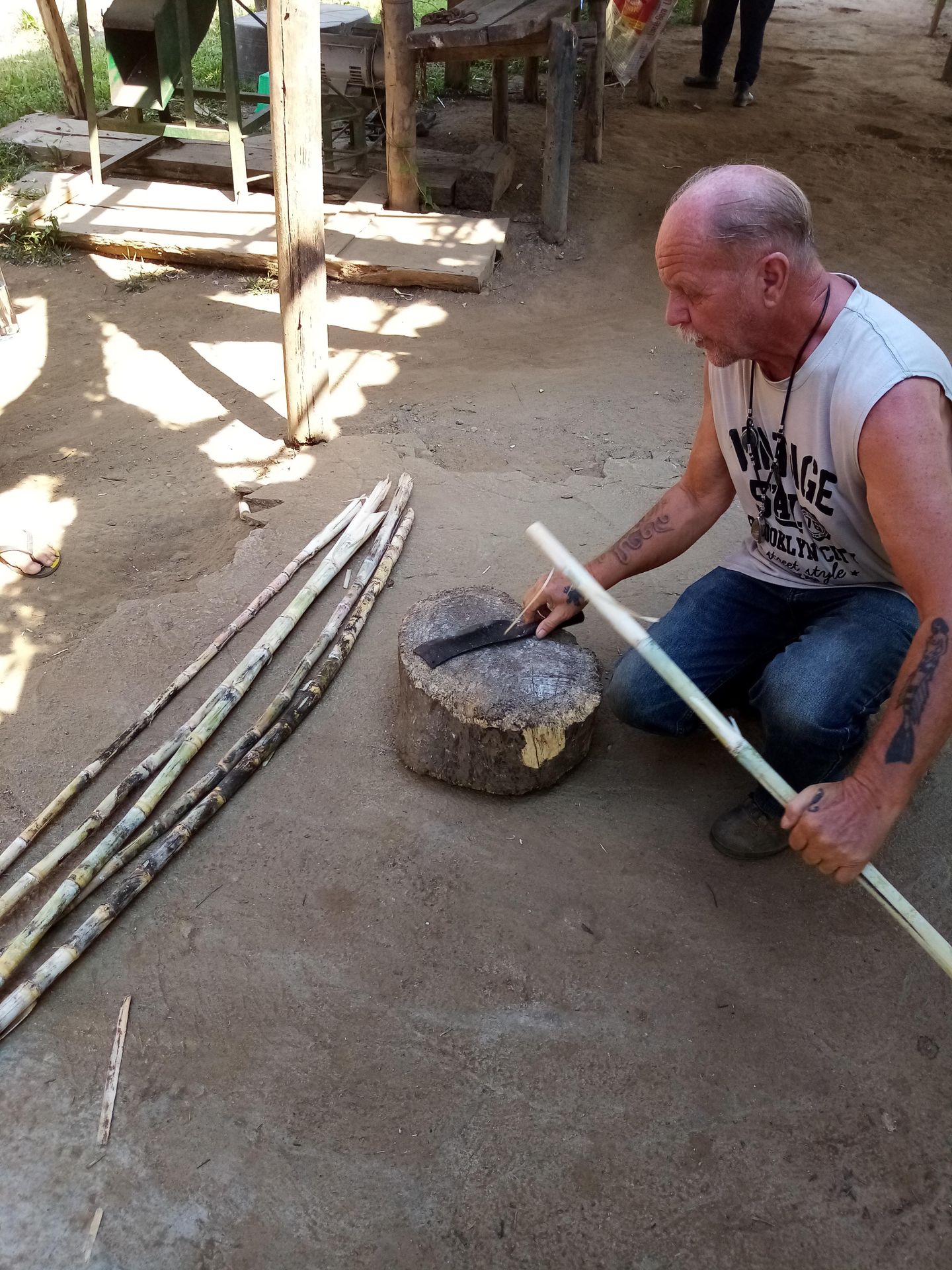
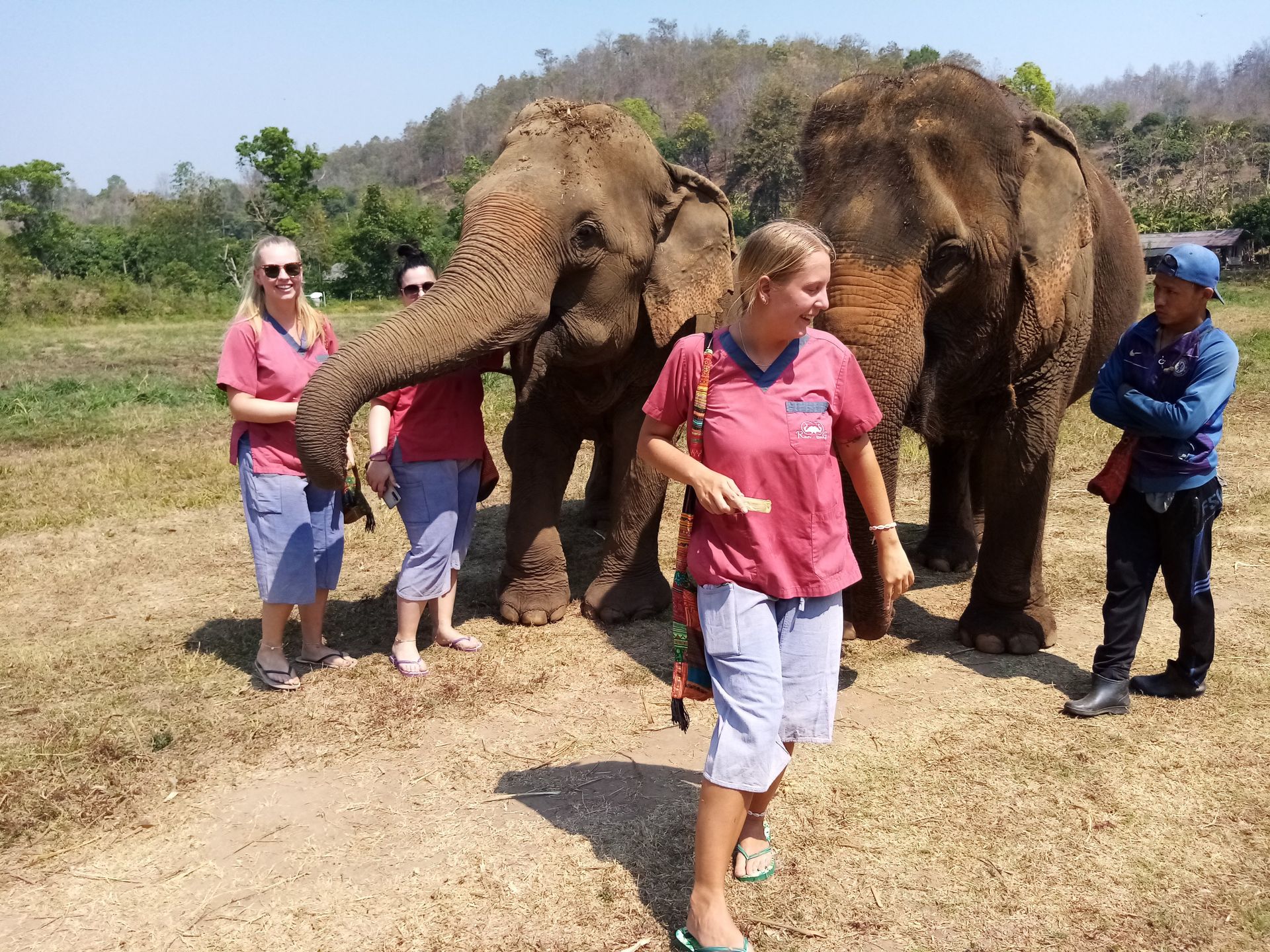
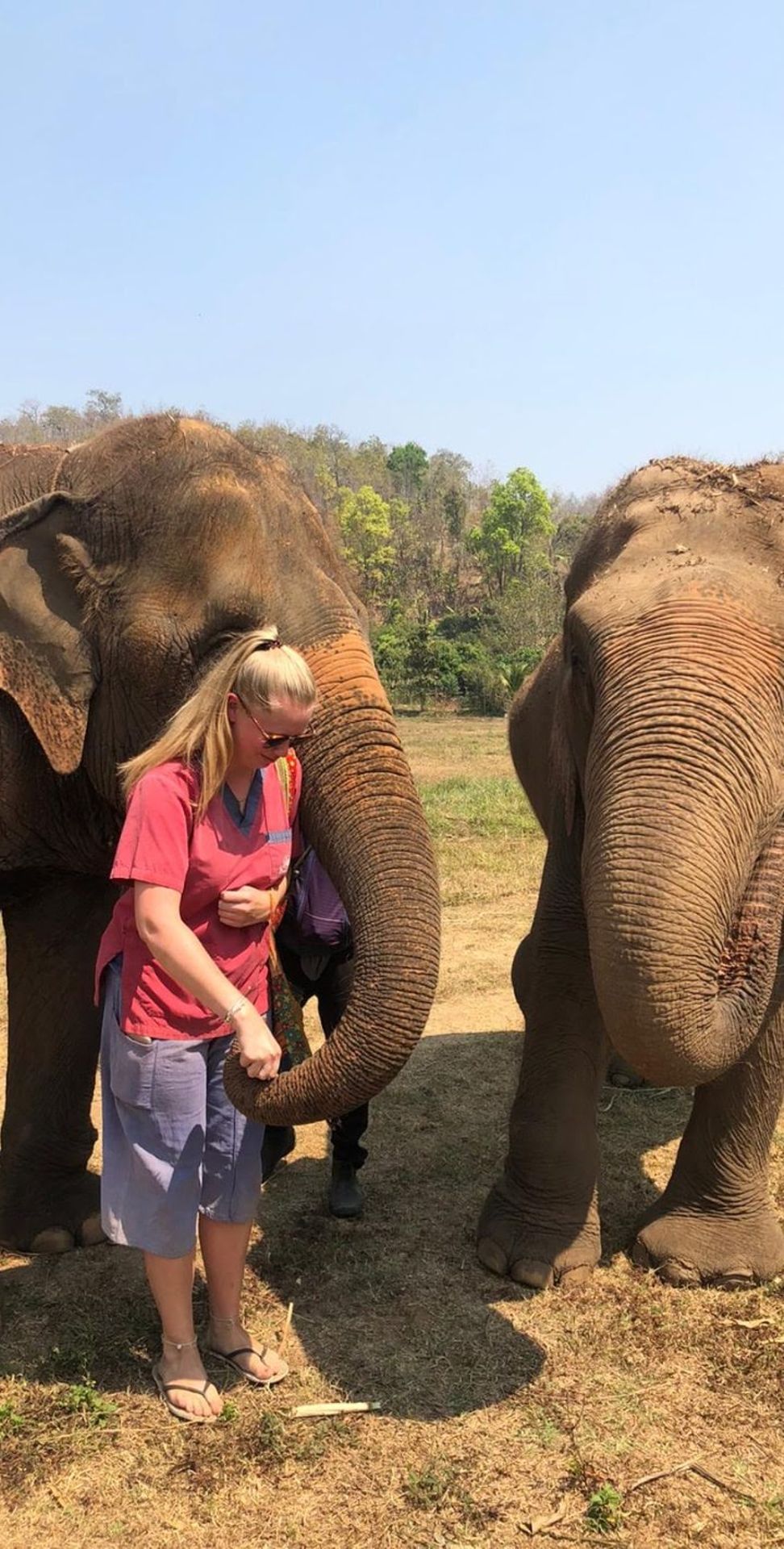
This sanctuary consists of two facilities. In the larger area, where we have been so far, the older elephants are housed, who therefore need more care. In the smaller area, mostly expectant mothers and their babies are accommodated. We then drove there and after lunch, we were allowed to see the little ones.
Elephant mothers have a strong protective instinct when it comes to their young. In order to not put the keepers, helpers, but also other elephants in danger, the mother and her baby are kept in an enclosed area. At the time of our visit, there were two little ones: one was 4 years old and the other was 6 months old.
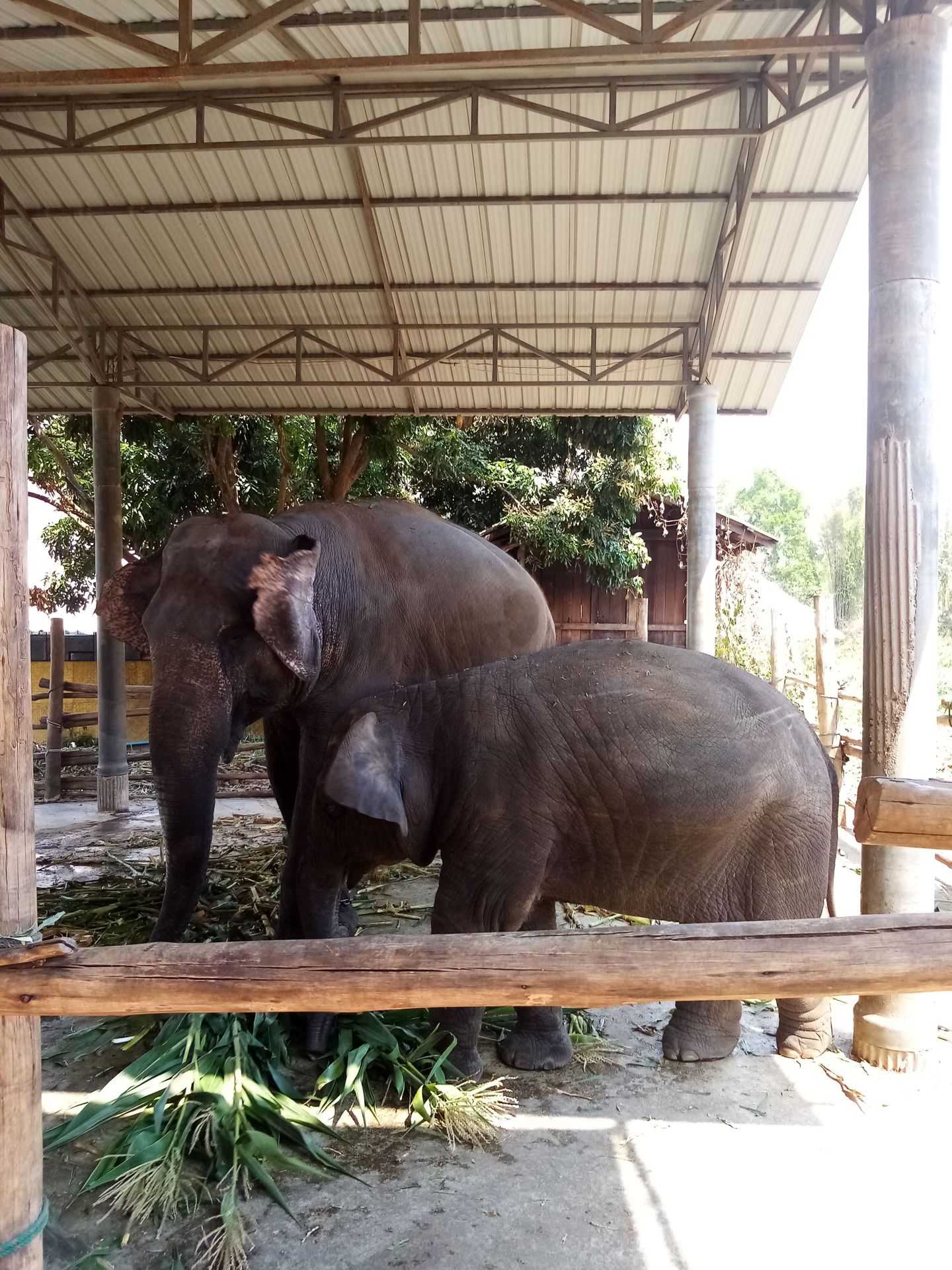
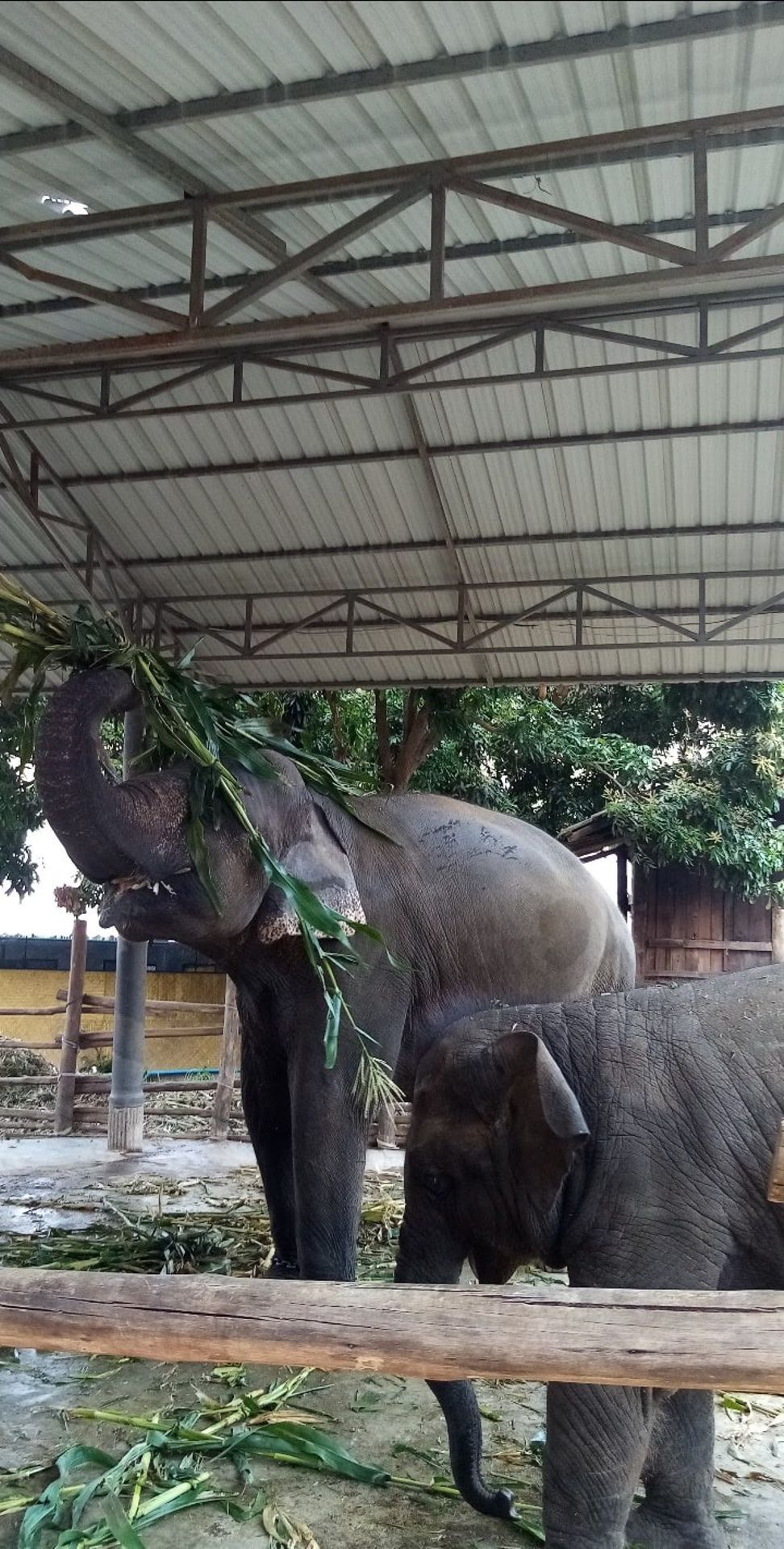
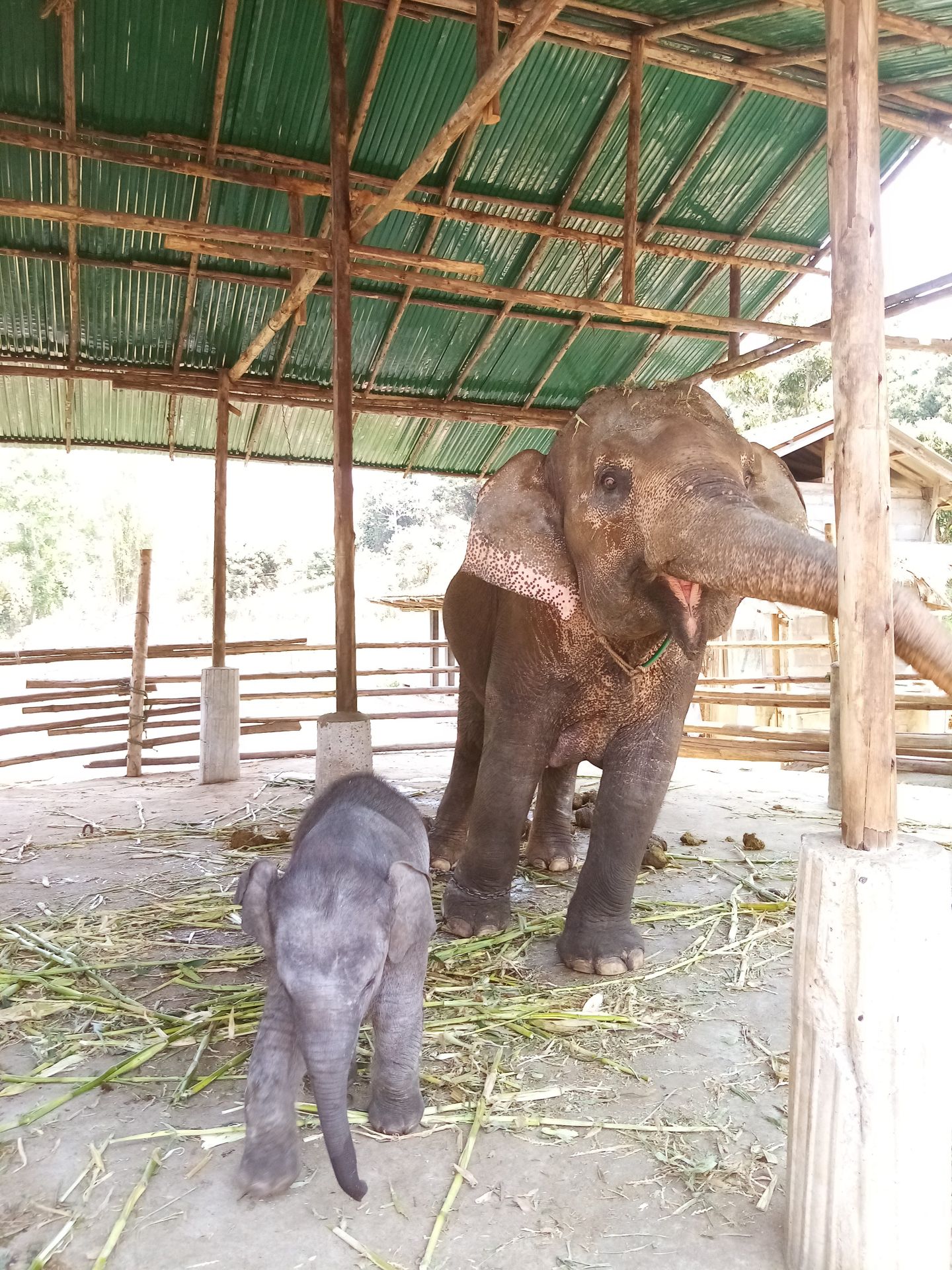
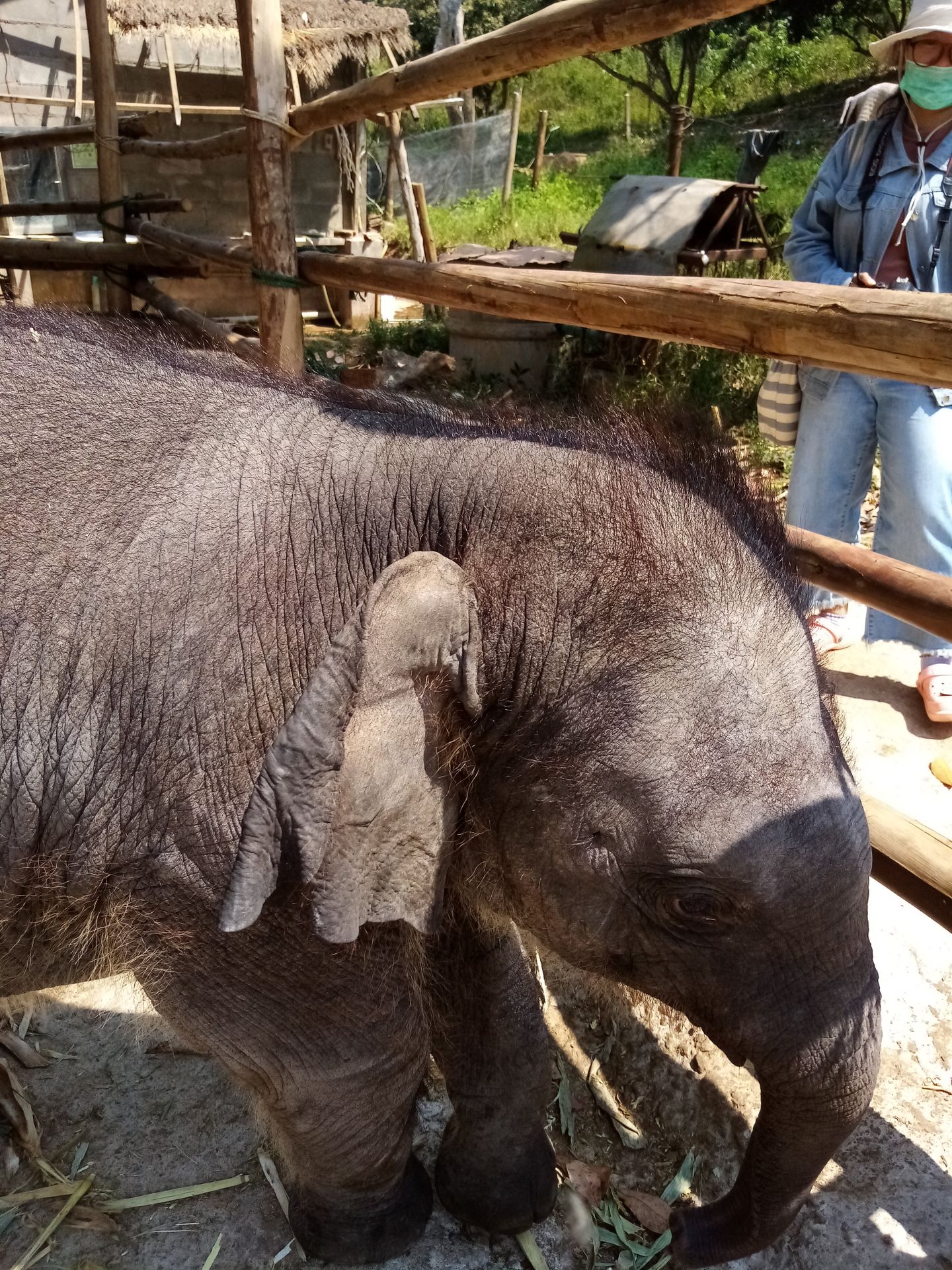
Back in the larger section of the camp, we prepared another treat: a mixture of pumpkin, rice, and tymarine, shaped into large balls. The elephants smelled this preparation from a distance and could hardly wait to be fed again. This time, we did not give them the balls in their trunks, as they would probably have fallen for them, but we placed them directly in their mouths. Some of them stuck out their tongues and felt afterwards, the tongue was very wet but soft ;)
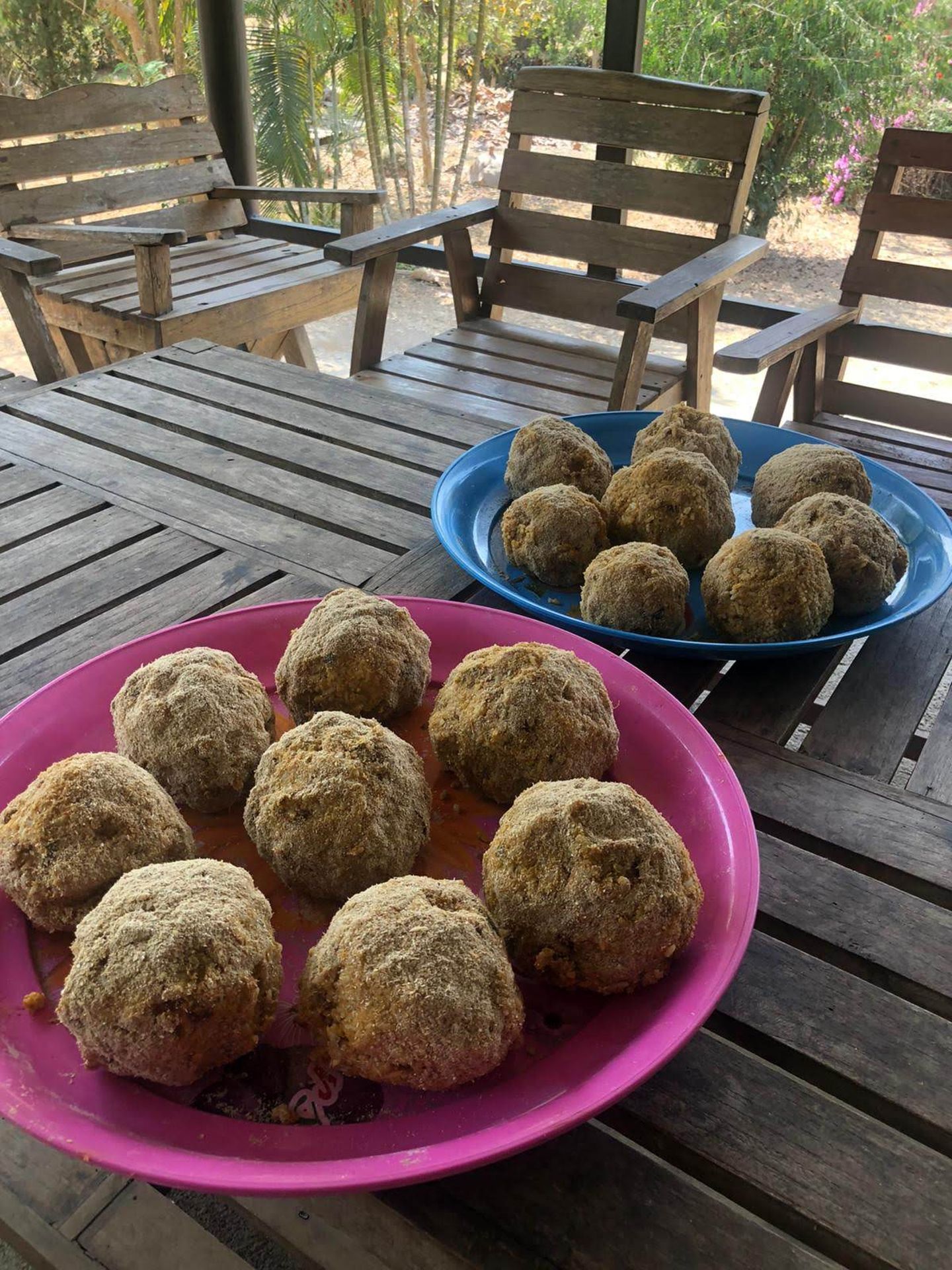
At the end of the day, the highlight was on the program: the mud bath, and it was good not to wear our own clothes for this. We led the way and the elephants followed us. There was so much mud in a pit that we practically got stuck in it (and even slipped at times), but for the elephants, this was paradise. They splashed each other and us. We took the mud and rubbed it on them - it's like a scrub for humans. Not everyone's cup of tea, but I was thrilled like a little child ;)


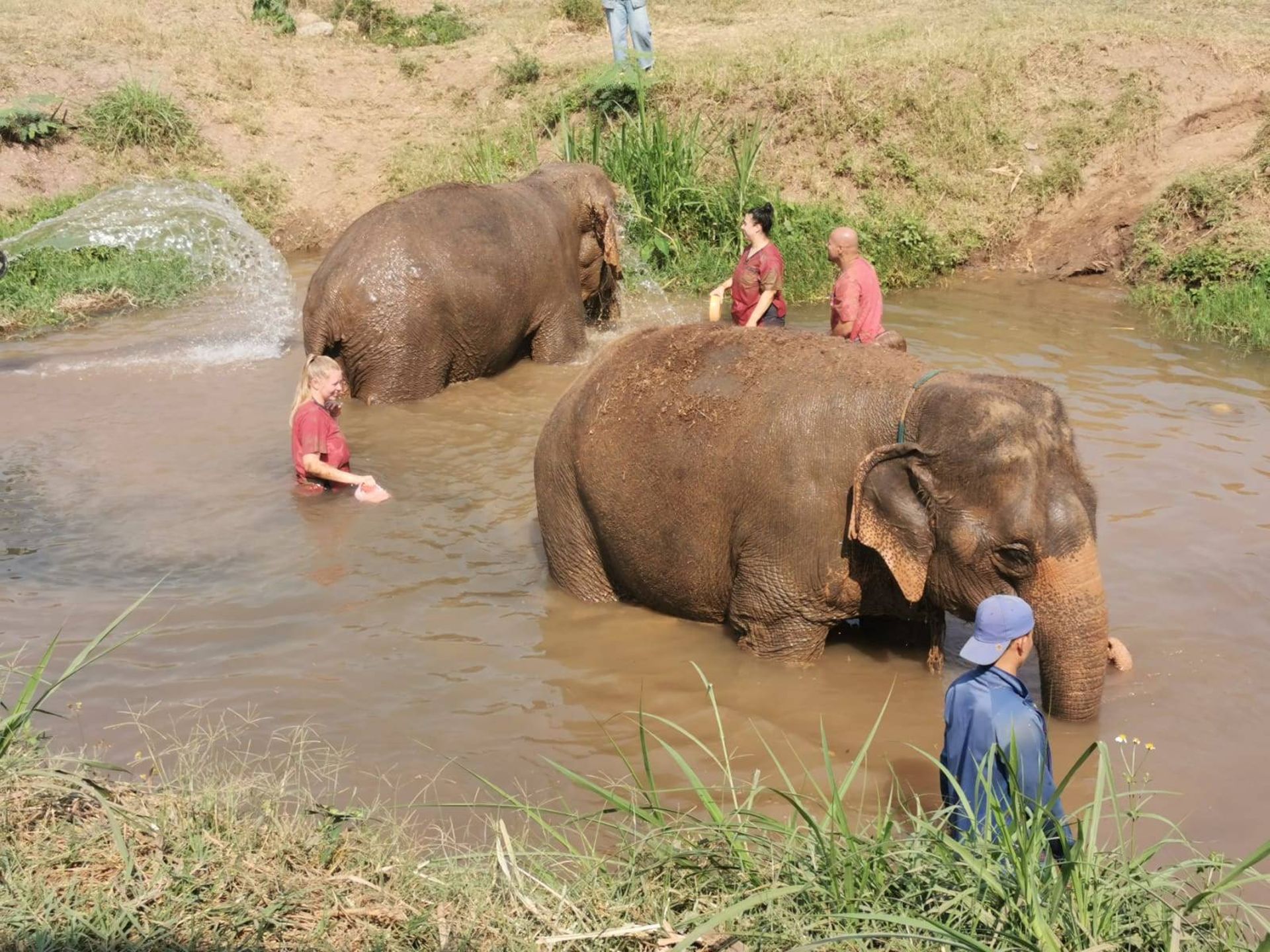
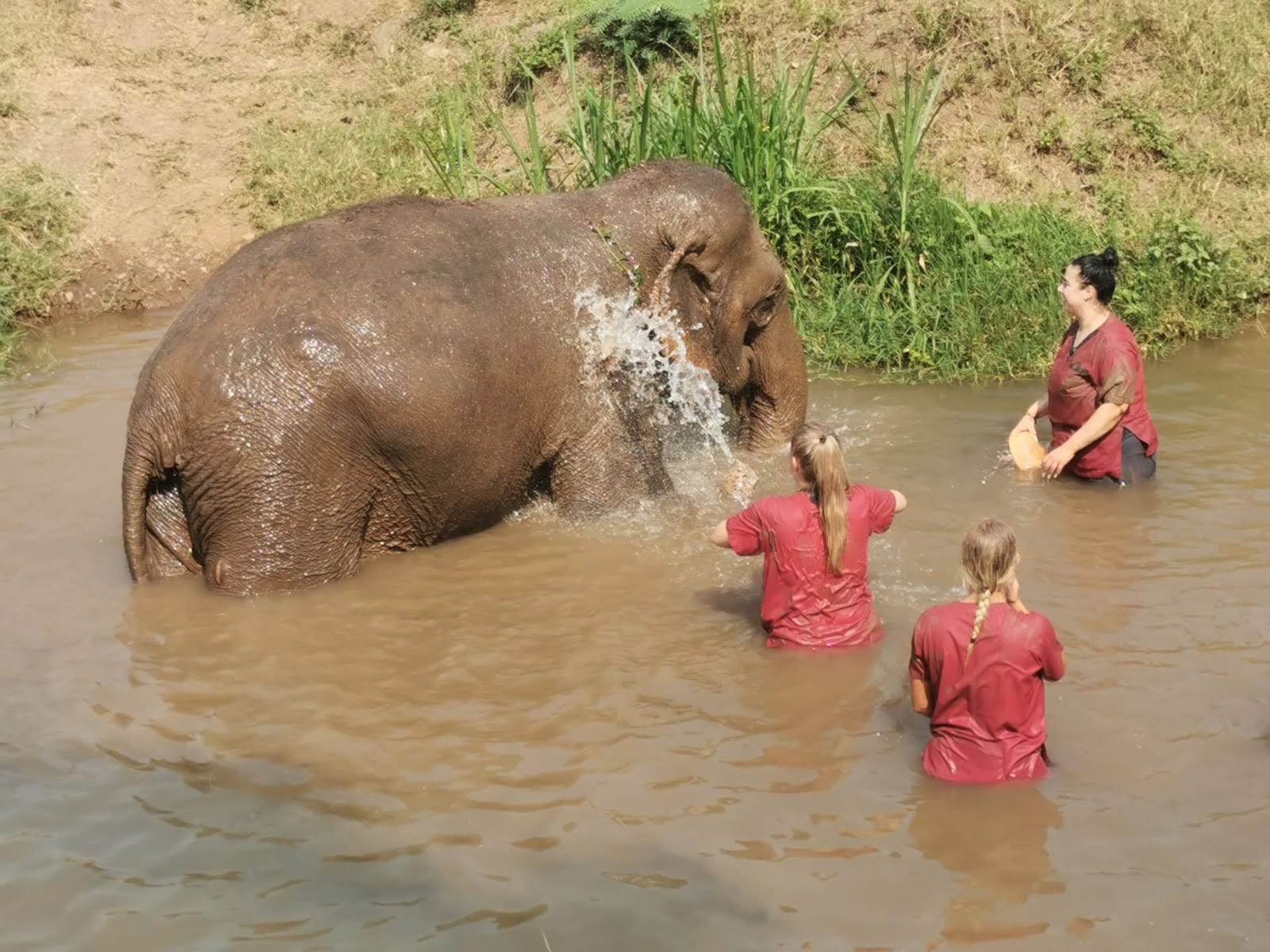
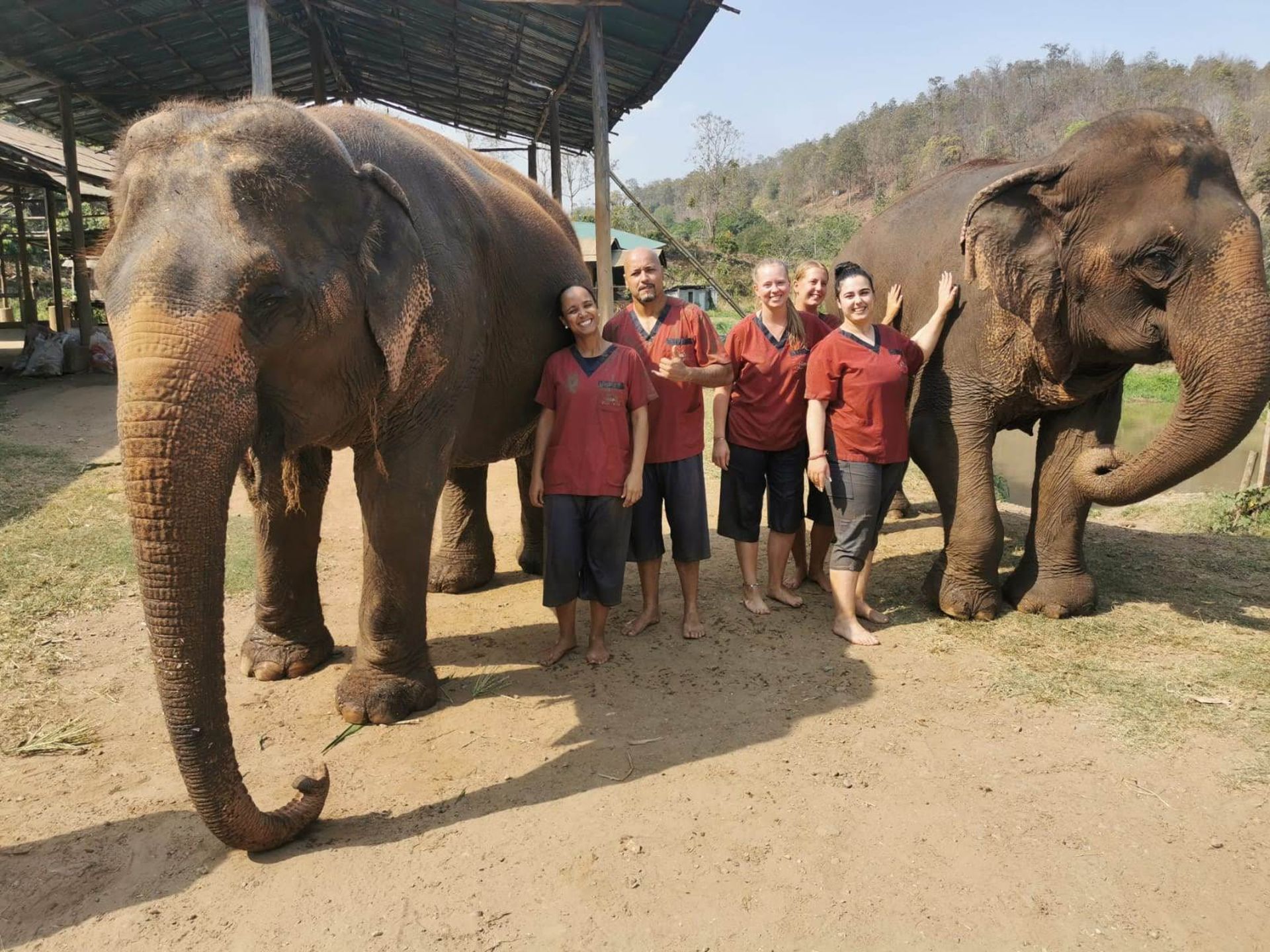
Svaraðu
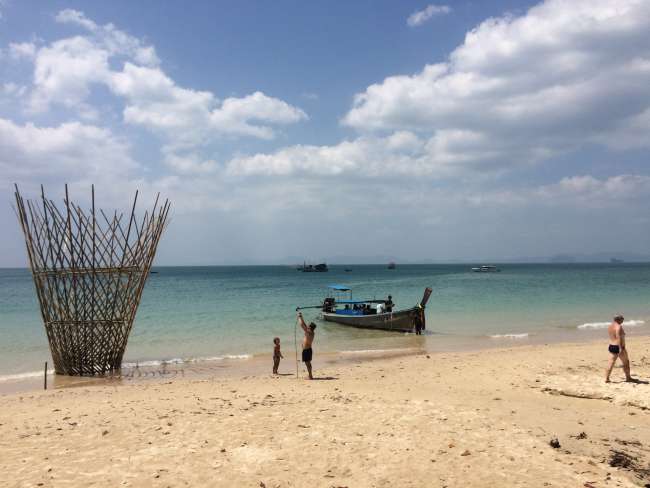
Ferðaskýrslur Tæland
